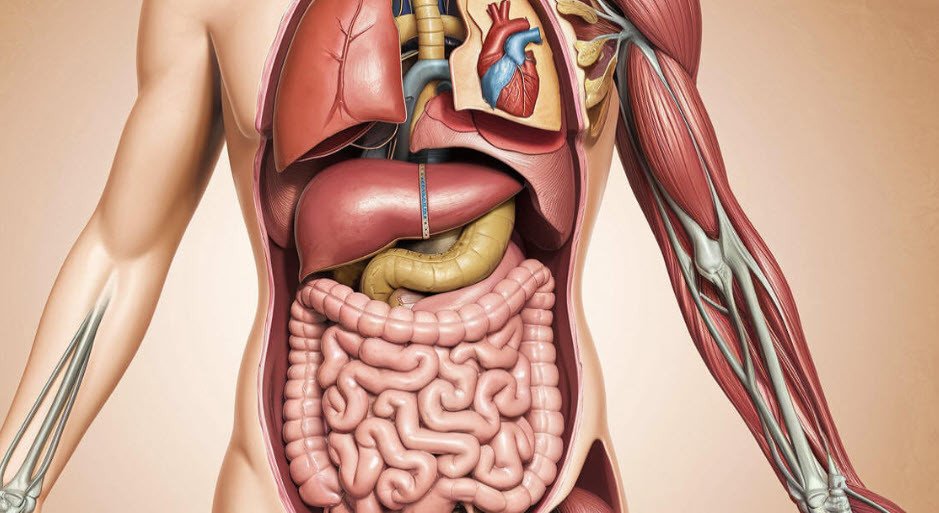TLDR:
1. Historically, humans often went without food for extended periods, akin to fasting, which was natural and beneficial.
2. Fasting triggers cellular clean-up (autophagy) and boosts growth hormones, supporting healing and resilience.
3. A 16-20 hour fast can improve mental clarity, fat burning, aging, and immune health.
4. Hunger signals are temporary and your body efficiently switches to stored fuel.
5. Skipping a meal now and then is a simple, powerful way to enhance overall health—your body’s innate wisdom is on your side.
Table of Contents
For most of human history, going extended periods of fasting wasn't a lifestyle choice—it was simply reality. Yet today, in our world of constant snacking and 24/7 food availability, we've forgotten a profound truth: Some of the most powerful healing happens when we're not eating.
During fasting, your body undergoes a series of impressive transformations at the cellular level. For instance, it initiates a process called autophagy—essentially, a cellular cleanup where old, damaged parts are recycled and replaced. Think of it as a natural spring cleaning that keeps your cells healthy and functioning optimally. This process not only prevents the accumulation of cellular debris that can lead to chronic diseases but also promotes regeneration and resilience. Additionally, fasting encourages hormonal shifts—such as increased production of human growth hormone—which support tissue repair and muscle preservation. All these intricate biological responses highlight that when you step back from constant eating, your body has an incredible ability to reset and restore itself from within.
What Really Happens When You Fast?
When you give your body a 16-20 hour break from food (as I regularly do with just liquids like coffee, electrolytes, and greens until dinner), remarkable biological processes kick in:
- The Digestive System Gets a Vacation
- Normally, digestion consumes massive amounts of energy
- During fasting, that energy redirects to repair and restoration
- Autophagy Activates (Your Cellular Cleanup Crew)
- Around 16+ hours without food, your body initiates this Nobel Prize-winning process
- Think of it as your cells' recycling program:
→ Breaks down damaged proteins
→ Clears out cellular debris
→ Eliminates invading pathogens
- Inflammation Melts Away
- Reduced digestive workload = less systemic inflammation
- Many report improved joint mobility and reduced pain
Why You Should Try This (Even Just 1-2x Weekly)
The benefits aren't just for biohackers or extreme athletes. Science shows intermittent fasting helps:
✔️ Sharpen Mental Clarity (no afternoon crashes)
✔️ Enhance Metabolic Flexibility (easier fat burning)
✔️ Slow Aging Processes (via cellular renewal)
✔️ Strengthen Immune Function (clearing out the "garbage")
How to Start Safely
- Begin with 12 Hours (e.g., finish dinner by 8pm, eat breakfast at 8am)
- Progress to 16 Hours (the sweet spot for autophagy)
- Stay Hydrated (water, herbal tea, electrolytes prevent fatigue)
- Listen to Your Body (some do better with morning eating, others at night)
The Liberating Truth About Hunger
That growling stomach you fear? It's not an emergency—it's your ancestral biology working as designed. Most "hunger" passes within 20 minutes as your body switches to stored fuel.
Embracing fasting doesn’t mean you have to overhaul your entire routine overnight. It’s about rediscovering a natural rhythm that aligns with your body’s innate wisdom. Start small—perhaps by extending your overnight fast or skipping one meal every now and then—and observe how your body responds. Over time, you may notice not just physical benefits, but a renewed sense of mental clarity and emotional resilience. Remember, this isn’t about deprivation; it’s about tuning into your own biological signals and trusting that your body is capable of healing, regenerating, and thriving when given the space to do so.
Final Thought: In our overfed yet undernourished world, the radical act of not eating might be one of the most powerful health interventions available. Your body knows how to heal—it just needs you to get out of the way sometimes.
"The best meal is the one you don't have to digest." Try skipping just one meal this week and notice how you feel. The results might surprise you.
If you require any assistance with this article, please do not hesitate to Contact Us
The content of this post is provided for informational purposes only. It is essential to consult with a qualified healthcare professional before making any decisions regarding your health or wellness. The author is not a licensed medical professional, and this information should not be considered medical advice.














